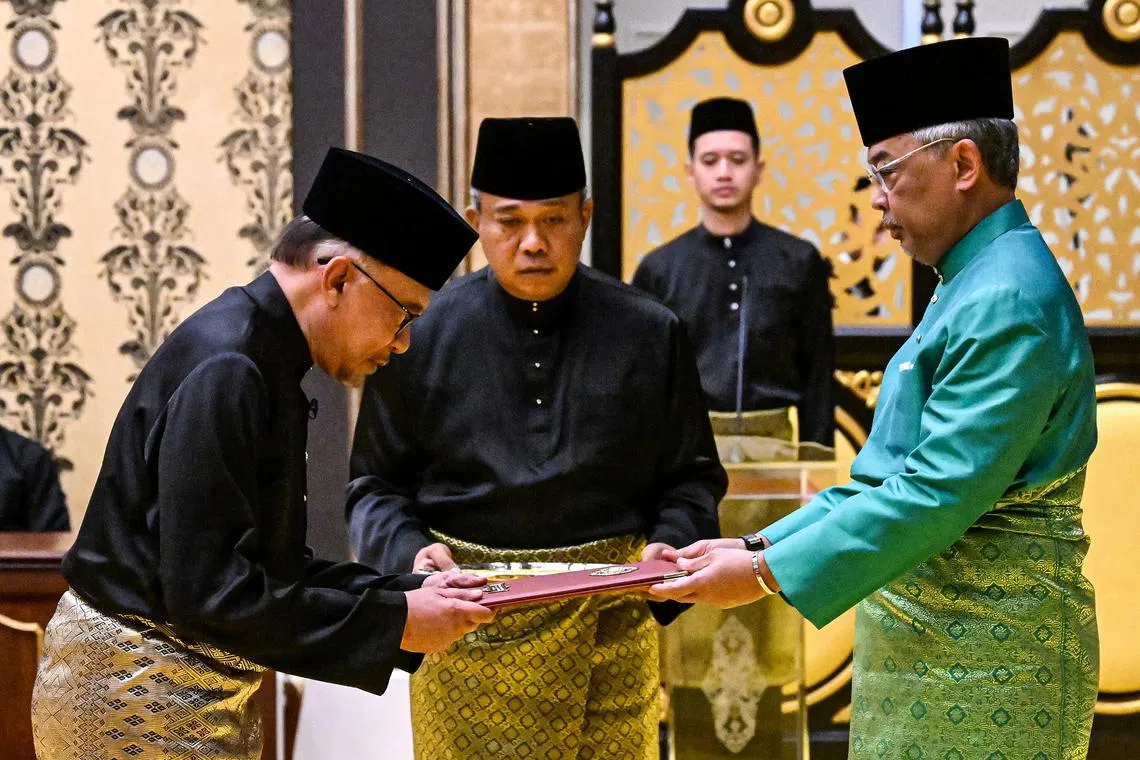For subscribers
The royal dilemma of picking a prime minister for Malaysia
The King unblocked an impasse and nudged a unity government into being. Active intervention in politics carries risks for the palace but failure to do so could also be damaging to national interests.
Sign up now: Get ST's newsletters delivered to your inbox

Datuk Seri Anwar Ibrahim (left) being sworn in as prime minister in front of Malaysia’s King Sultan Abdullah Sultan Ahmad Shah on Nov 24.
PHOTO: EPA-EFE
Datuk Seri Anwar Ibrahim, leader of the Pakatan Harapan (PH) coalition, was sworn in as Malaysia’s 10th Prime Minister by the King, Sultan Abdullah Ahmad Shah, on Nov 24.
This perception has grown particularly since 2020 as Malaysia found itself faced with unprecedented political crises first triggered by then Prime Minister Mahathir Mohamad’s resignation.


